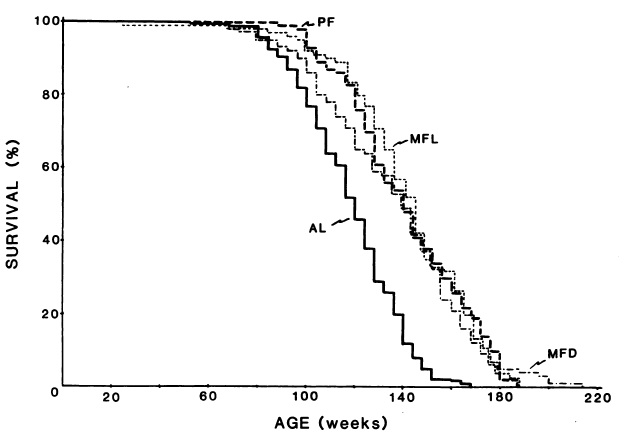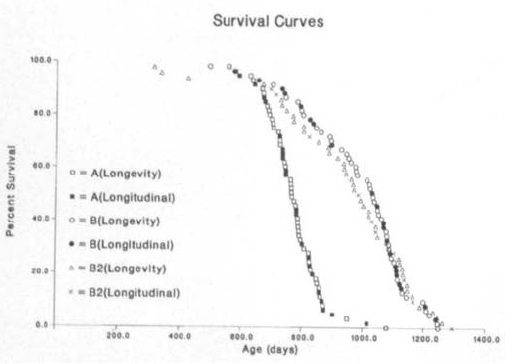...this is what used to be called "lifetime energy intake."
Ha! funny that it came up. I'm curious, is there anything to it?
To what long-term, prospective studies, with health outcomes (not surrogate markers), would you point to support the long-term health benefits of a regimen of intermittent prolonged fasting...? And there are no data at all, to my knowledge, that ketones or blood pH, intermittently or chronically, are reliable predictors of health outcomes in normal, healthy humans (as opposed to epileptics); do you have any to cite?
Okay, I see now that there are 2 issues here, CR that slows down the rate of damage and periodic prolonged fasts, a.k.a. starvation, that activates cellular repair mechanisms. The distinction is clear to me now: with your sustained CR you seek to minimize the damage and so to last longer, while I, with my fasts, fix the damage that has already occurred. Well then, if there is anything indeed to the "lifetime energy intake", then, assuming that my total
calories per year match yours, then my CR method should be superior to yours, won't you think?
Regarding the studies, these would be all the studies constantly cited on ImmInst. They all seek to mimic the benefits of starvation with compounds like resveratrol or anything that triggers autophagy, or apoptosis of defective cells, etc.
And yes, the point of all ketogenic diets, including the original one for epileptic children, is to mimic the
metabolism of starvation. It's funny how many people that are on ketogenic diets for various reasons are not aware of this fact. And I hope that by now we all know that starvation is characterized not just by low glucose, but also by low plasma pH and high ketone levels (around 5-7 mmol/L).
What I don't get is how you people, in search of activated sirtuins, autophagy and cellular repair mechanisms,
I'm not in search of any of that: I'm in search of retardation of the biological aging process..
Fair enough..
.. the phenomena you mention here are CR-associated changes that some people think may be mechanistically involved in the effect, but it would be silly to go after them for their own sake. The CR data validates interest in these possible mechanisms, not vice-versa.
Hm... maybe.
When you apply mice CR studies to yourself, you seem to overlook the fact that a mouse looses 10% of its body weight in 24 hours.
Mice on CR (ie, the ones that have actually been shown to live longer and healthier) are not allowed to lose weight at this rate.
Not allowed? That's the rate they loose weight after
24h of food deprivation. That's a fact. As is the fact that metabolic markers of
40% CR mice match markers of
week+ starving humans.
These are the facts you people seem to glance over when you apply the rodent CR studies to yourselves. The point is, for mice and rats 24 hours of food deprivation constitutes a real long-time fast.
And the studies show that you don't need a 24 h fast to get the CR effect. Please see my graphs.
You keep on mixing apples with oranges. Those are CR effects on humans, compared with 24h fasting humans, which is not a fast proper, but a temporary abstinence from food, with metabolic markers that an average mouse
probably reaches daily after a 3h break from eating. And yet you constantly cite rodent CR to justify your rosy expectations of human LE due to CR.
But.. surely, with your CR you will prolong your LS, and so will most likely reach into 80s and 90s and maybe even 100s. But it won't get you anything extraordinary. Hey, my grandma lived 94 and she spent 19 years in Siberian camps, and even after she came out, her whole life, she had to economize on food. On the other hand, her sister, who ran to the US in her 20s, lived only till her mid 70s. That's just to show you that CR is and has been practiced in so many ways by humans throughout the ages, and the max LS it can give is well known.
techniques ...

















































